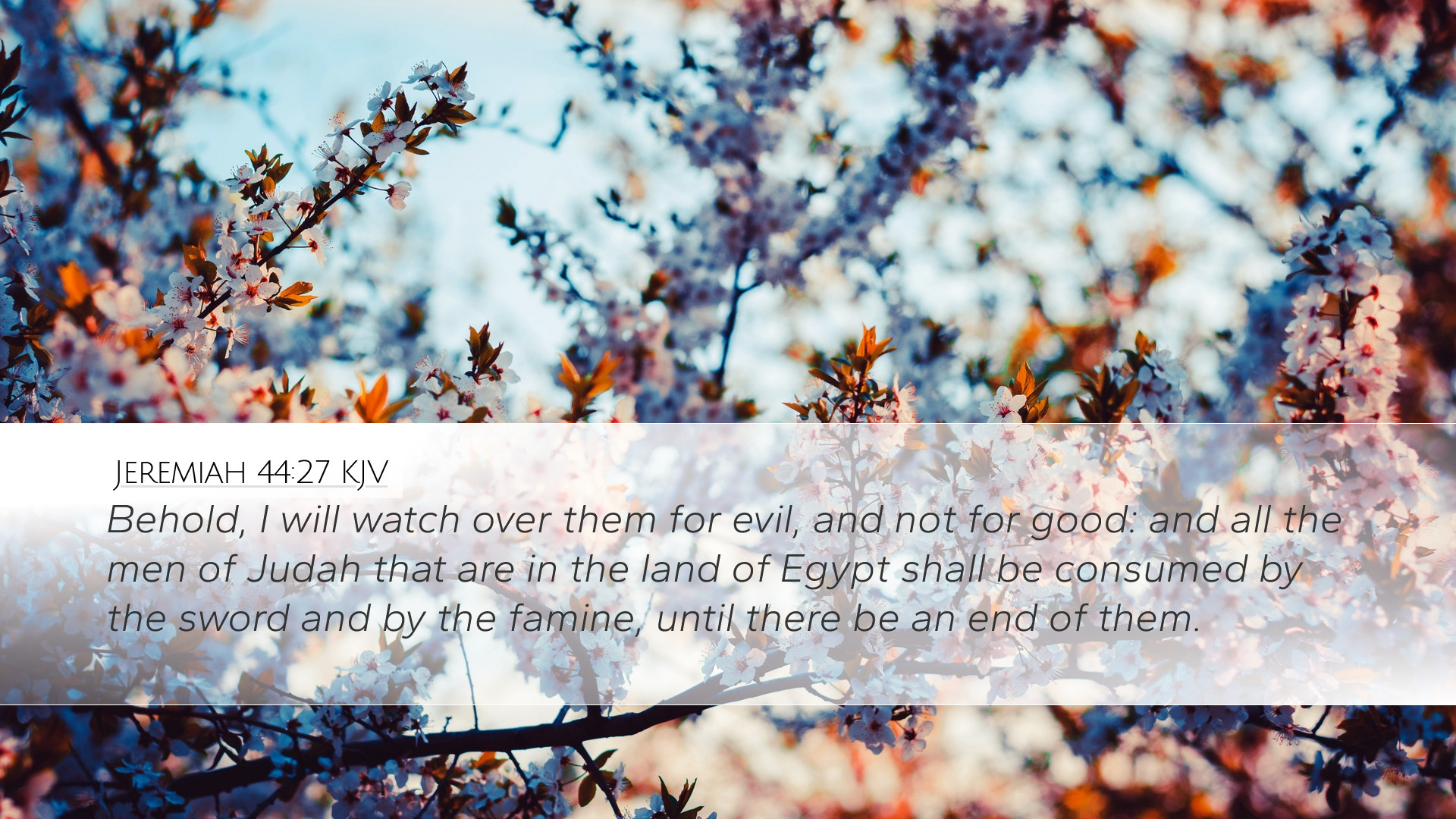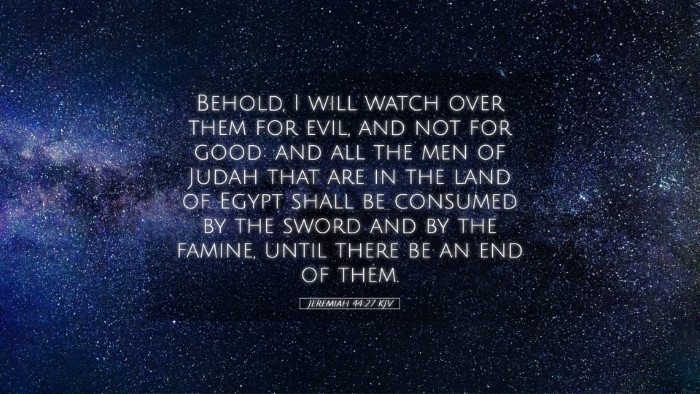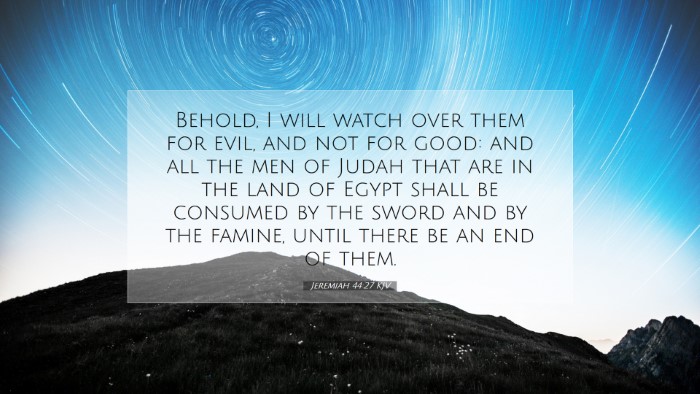Jeremiah 44:27: “Behold, I will watch over them for evil, and not for good; and all the men of Judah that are in the land of Egypt shall be consumed by the sword and by the famine, until there be an end of them.”
Summary of Insights from Public Domain Commentaries
Introduction
This profound verse from the Book of Jeremiah unveils God’s judgment against the people of Judah who have sought refuge in Egypt, turning their backs on the covenantal relationship they had with Him. The prophetic declaration made by Jeremiah serves as a sobering reminder of divine retribution and the serious consequences that accompany disobedience.
Contextual Background
Jeremiah, often referred to as the “weeping prophet,” was called to minister to a people entrenched in idolatry and rebellion against God. After the fall of Jerusalem, a remnant of Judah fled to Egypt in search of safety rather than relying on the promises of God. This act of defiance and lack of trust precipitated God’s stern warning through the prophet.
Exegesis of Key Terms
- “Behold”: A call to attention; it signals the importance of the message that follows.
- “I will watch over them for evil”: This phrase illustrates God’s active role in orchestrating judgment, contrasting the protective oversight He offered to those who remained faithful. It indicates a shift from safeguarding to sanctioning.
- “Consuming”: The consequences of judgment will result in complete devastation, emphasizing the fierce and unyielding nature of divine justice.
Theological Implications
The verse captures the essence of God’s sovereignty and justice. It portrays a God who is deeply involved in the affairs of humanity, both for their protection and their punishment. The duality of divine oversight raises critical theological questions about free will, judgment, and the nature of God’s covenant.
Matthew Henry emphasizes that God’s vigilance can lead to protection or destruction based on human response. Those fleeing to Egypt displayed a blatant disregard for God’s commandments and a lack of faith in His ability to protect them.
Albert Barnes adds that this judgment was deserved due to their persistent idolatry and disobedience. Their refusal to heed Jeremiah’s warnings indicated a rejection of God’s authority.
Adam Clarke notes that while God could have protected them, their choice to worship other gods led to their demise. This choice highlights the severity of placing one’s trust in worldly solutions over divine providence.
Message for Contemporary Readers
The verse carries significant relevance for modern readers, particularly for pastors, students, theologians, and Bible scholars. It serves as a reminder of the gravity of sin and the importance of faithfulness to God’s Word.
- Faithfulness: Believers must remain steadfast in their faith amidst trials, avoiding the temptation to seek refuge in worldly ideologies or practices.
- Divine Judgment: Acknowledge the seriousness of God’s judgment. The absence of God’s protection invites dire consequences, underlining the importance of obedience and reverence for divine law.
- God’s Sovereignty: Recognize that even in their rebellion, God’s ultimate aim is to manifest His plan and purpose. His oversight serves to fulfill His will, whether through discipline or deliverance.
Application for Ministry
Pastors and leaders in the Christian community are called to reach out to those who may be seeking refuge in places that are contrary to God’s will. This verse can be a powerful message in sermons emphasizing the importance of turning towards God rather than away from Him.
Reflection Questions:
- In what areas of life are we tempted to seek security outside of God?
- How can we encourage our congregations to trust in God’s provision and protection amidst fear and uncertainty?
- What practical steps can be taken to ensure our faithfulness to God’s commands?
Conclusion
Jeremiah 44:27 serves as a chilling reminder of the consequences that follow disobedience, reflecting a timeless truth that resonates throughout Scripture. The implications of this verse extend beyond the historical context of Judah, calling believers of all ages to a deeper understanding of God’s nature, the seriousness of sin, and the call to unwavering faithfulness.


